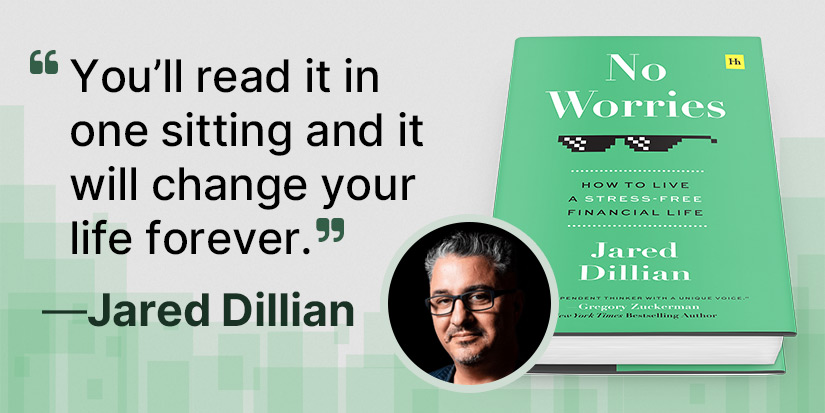
Pay Down Your Mortgage
-
 Jared Dillian
Jared Dillian
- |
- November 16, 2017
- |
- Comments
The latest issue of Street Freak came out on Tuesday. Street Freak is a bit of an aggressive stock-picking newsletter, where we come up with a new idea every month. I try to keep the ideas a secret—if you want them, you have to subscribe! But I’m going to let you in on this month’s idea for free. Are you ready? Here it is:
Pay down your mortgage.
Yes, that’s a bit unorthodox for a financial newsletter. But people spend too much time thinking about the next get-rich-quick idea and not enough time thinking about their overall financial well-being. I’m willing to bet that in addition to having a successful portfolio, many investors reading this also have a lot of debt.
Going into what might be a downturn, I’m uncomfortable having a lot of financial leverage. If you think the market is going to go down, then you should stop thinking about buying inverse VIX ETNs and start thinking about how to deleverage in a smart fashion.
Better Risk-Reward
Paying down your mortgage is part of that. It is part of an overall exercise in balance sheet repair, which includes—
- Building a cash position
- Paying off debt:
- Margin debt
- Credit card debt
- Car loans
- Mortgage debt
Financial leverage cuts both ways. It can help you on the way up, and it can hurt you on the way down.
Funny thing about paying down debt—technically, you are “making” whatever the interest rate on your loan is. If you are paying down a 4% mortgage, you are actually earning a 4% return (on a pre-tax basis). Given that high-yield ETFs yield about 5% these days (and are circling the drain), it seems like a much better risk-reward.
Also, I would not get too caught up in thinking about your mortgage interest deduction. Chances are, it is going away anyway in the tax reform bill, and besides, that is a terrible reason to have debt. There is nothing quite like the peace of mind of having a house that is paid for, or nearly so. Trust me, I’ve been there.1
As for credit card debt… there is no reason to have credit card debt unless you are experiencing temporary financial stress, in which case a stock pick from a newsletter is not going to help you.
And I would not worry too much about your credit score suffering because you do not have any debt. That’s the wrong reason to take out debt.
Freedom
Bernie Sanders likes to talk about how the US isn’t really a free country because people don’t have freedom from financial stress. Well, financial stress is just a part of life in a free market economy.
But take a page out of the Bernie Sanders playbook and… eliminate your financial stress! All this money going out the door in monthly payments—you can make it stop. There is no freedom in the world quite like freedom from debt.
If you don’t do this, and we get the downturn I think we are going to get, your balance sheet is going to deteriorate as the asset side of the ledger gets smaller. So the goal here is to deleverage when you can, not when you have to. Forced deleveraging (i.e., margin calls) is never any fun.
I am half-descended from flinty New Englanders. You have never met a cheap b****** like a Connecticutian, so part of this is in my DNA. New England is the land of the good credit scores.
Don’t worry, I’m taking my own advice. The goal is to get the house paid off in 2-3 years. When I look in the mortgage amortization spreadsheet I built and add up all the interest I’ve paid since I bought the house in 2015, it just makes me mad. I told the loan officer when I got the mortgage that I was going to prepay the hell out of it. He didn’t seem to mind. Not his problem.
Like what you're reading?
Get this free newsletter in your inbox every Thursday! Read our privacy policy here.
My guess is that when the market turns, we are going to be hearing about a lot of hidden leverage that we never even knew was there. It is like that old Warren Buffett quote: “You only find out who is swimming naked when the tide goes out.”
One final thing. Early bird registration for Mauldin Economics’ Strategic Investment Conference opens today. If you’re planning on going, now is the time to get your ticket—because you can get it at a discount of more than 20%. Last year was terrific (Matt Ridley was a personal favorite) and SIC 2018 will be too. Get your ticket here.1 One wrinkle: if your house is nearly paid off and you do run into financial trouble, the bank will foreclose on a low LTV mortgage first. But this shouldn’t really be a consideration—just something to keep in the back of your mind.
subscribers@mauldineconomics.com
Tags
Suggested Reading...
|
|

 Jared Dillian
Jared Dillian

